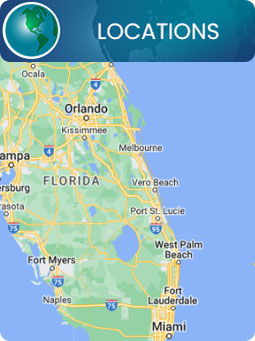Pain Medicine for Addicts Q&A
Addiction is a medical condition in which something that feels delightful becomes something you can’t live without. According to research, using opioid medications for a prolonged period increases the likelihood of becoming addicted to them. Patients with pain who are addicted to or abusing opioids can receive effective treatment from Dr. Michael S. Slobasky, DO, DABPMR, and his caring staff at Global Neuro & Spine Institute. For more information, contact us or schedule an appointment online. We have convenient locations in Orlando FL, Jensen Beach FL, Malabar Palm Bay FL, Atlantis FL, Fort Pierce FL, Winter Park FL and Plantation, FL.


Table of Contents:
What do you give an addict for pain?
Can an addict take pain medication?
What is the best form of treatment for those with an addiction?
How do you deal with addiction and chronic pain?
Treating pain in individuals with addiction can be challenging, as traditional pain medications such as opioids can be highly addictive and potentially trigger a relapse. However, it’s important to address the patient’s pain to improve their overall well-being and increase their chances of success in recovery.
Non-opioid alternatives, such as non-steroidal anti-inflammatory drugs (NSAIDs), acetaminophen, and certain antidepressants and anticonvulsants, may effectively manage pain while minimizing the risk of addiction.
Physical therapy, acupuncture, and other forms of alternative medicine can also be useful. It’s crucial to work with a healthcare professional who has experience treating addiction to determine the best course of treatment for the individual. If you are an addict, the best route to take is to work with a healthcare professional for pain management.
Addiction is a complex disease that affects not only the individual struggling with substance use disorder but also their loved ones and society as a whole. However, an addict can take pain medication. A harm reduction approach can be used where the healthcare professional will closely monitor the patient’s usage of pain medication and will adjust the dosage or type of medication accordingly. It’s crucial to approach the pain management of an addict with care and caution to ensure the best outcome.
Addiction treatment is a highly individualized process that varies based on the specific substance of abuse, the severity of the addiction, and the patient’s unique needs and circumstances. However, research suggests that the most effective form of addiction treatment is a combination of medication and behavioral therapy. Medication and behavioral therapy approaches work hand-in-hand to help an addict who is suffering from pain.
Medication-assisted treatment (MAT) uses FDA-approved medications, such as methadone, buprenorphine, and naltrexone, in conjunction with counseling and behavioral therapies to address both the physical and psychological aspects of addiction.
Behavioral therapies, such as cognitive-behavioral therapy (CBT) and contingency management, can help patients to identify and change negative thoughts and behaviors related to their addiction. Additionally, support groups, such as 12-step programs, can also be a helpful addition to the treatment plan.
Dealing with chronic pain and addiction can be a challenging and complex process, as both conditions can have a significant impact on an individual’s physical and mental well-being. However, it is important to address both requirements at the same time to improve a person’s overall quality of life.
One of the most effective ways to deal with chronic pain and addiction is by utilizing behavioral therapy and medication. Medication-assisted treatment (MAT) with counseling and behavioral therapies are big benefits for patients. Behavioral therapies can help patients with identifying and changing negative thoughts and behaviors that are linked directly to their addiction.
Additionally, non-opioid alternatives may be effective in managing chronic pain while minimizing the risk of addiction. Physical therapy, acupuncture, and other forms of alternative medicine can also be useful in addressing chronic pain.
It is essential to work closely with a healthcare professional who has experience treating addiction and chronic pain. Our team of healthcare professionals at Global Neuro & Spine is here to help addicts combat pain safely and effectively. Our goal is to help treat your pain while keeping you healthy, and more importantly, we want everyone to start enjoying life again. Reach out to us today through the pages of our website so that you can book an appointment and meet with our team of leading healthcare professionals.
Dr. Michael S. Slobasky, DO, DABPMR, along with his compassionate staff offers multiple treatments for addiction because of pain medicine at Global Neuro & Spine Institute. For more information, contact us or schedule an appointment online. We have convenient locations in Orlando FL, Jensen Beach FL, Malabar Palm Bay FL, Atlantis FL, Fort Pierce FL, Winter Park FL and Plantation, FL.

CONDITIONS WE TREATED:
- Facet Joint Disorders
- Back Surgery Complications
- Migraines
- Herniated Discs
- Back Pain
- Lower Back Pain
- Neck Pain
- Sciatica Pain
- Abdominal Pain
- Compression Fractures
- Joint Pain Treatments
- Shoulder Pain Treatments
- Elbow Pain Treatments
- Hip Pain Treatments
- Knee Pain Treatments
- Diabetic Peripheral Neuropathy
- Complex Regional Pain Syndrome
- Pelvic Pain
- Occipital Neuralgia
- Chest Wall Pain
- Chronic Facial Pain
- Phantom Limb Pain
- Interstitial Cystitis – Pelvic Pain
- Herpetic Neuralgia
- Cervical Radiculopathy
- Degenerative Disc Disease
ADDITIONAL SERVICES
- Kyphoplasty
- Epidural Steroid Injection
- Posterior Facet Blocks – Rhizotomy
- Sacroiliac Joint Injection
- Percutaneous Discectomy
- Stellate Ganglion Blocks
- Intercostal Nerve Blocks
- Intra-Articular Peripheral Joint Injection
- Lumbar Epidural Steroid Injections
- Coccygeal Nerve Block
- Occipital Nerve Blocks / Rhizotomy
- Selective Nerve Root Blocks
- Discography
- Hardware Blocks
- Cluneal Nerve Block
- Spinal Cord Stimulators
- Sympathetic Nerve Blocks
- Headaches Treatments

CONDITIONS WE TREATED:
- Facet Joint Disorders
- Back Surgery Complications
- Migraines
- Herniated Discs
- Back Pain
- Lower Back Pain
- Neck Pain
- Sciatica Pain
- Abdominal Pain
- Compression Fractures
- Joint Pain Treatments
- Shoulder Pain Treatments
- Elbow Pain Treatments
- Hip Pain Treatments
- Knee Pain Treatments
- Diabetic Peripheral Neuropathy
- Complex Regional Pain Syndrome
- Pelvic Pain
- Occipital Neuralgia
- Chest Wall Pain
- Chronic Facial Pain
- Phantom Limb Pain
- Interstitial Cystitis – Pelvic Pain
- Herpetic Neuralgia
- Cervical Radiculopathy
- Degenerative Disc Disease
ADDITIONAL SERVICES
- Kyphoplasty
- Epidural Steroid Injection
- Posterior Facet Blocks – Rhizotomy
- Sacroiliac Joint Injection
- Percutaneous Discectomy
- Stellate Ganglion Blocks
- Intercostal Nerve Blocks
- Intra-Articular Peripheral Joint Injection
- Lumbar Epidural Steroid Injections
- Coccygeal Nerve Block
- Occipital Nerve Blocks / Rhizotomy
- Selective Nerve Root Blocks
- Discography
- Hardware Blocks
- Cluneal Nerve Block
- Spinal Cord Stimulators
- Sympathetic Nerve Blocks
- Headaches Treatments






